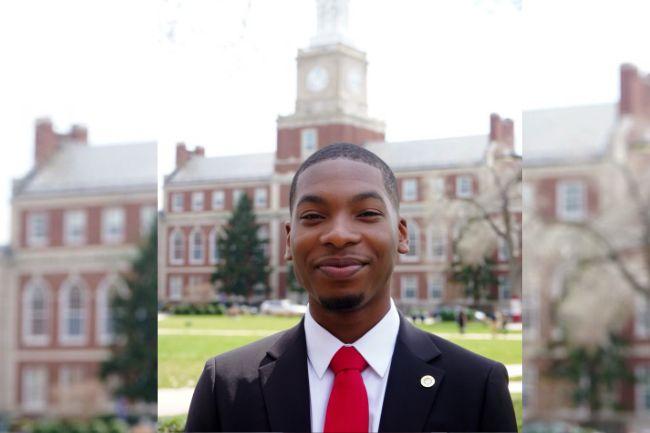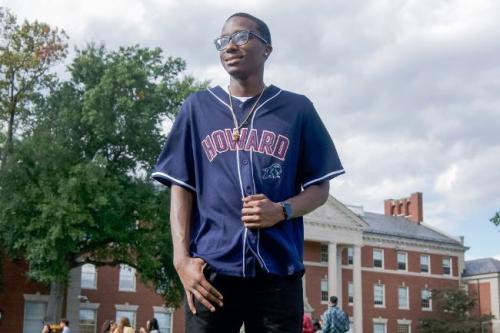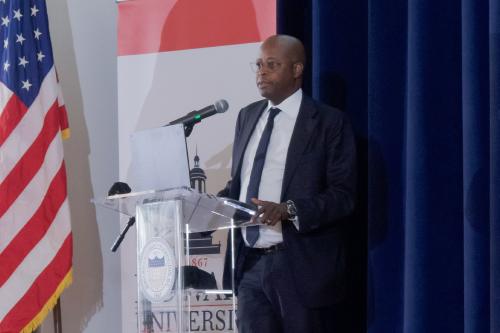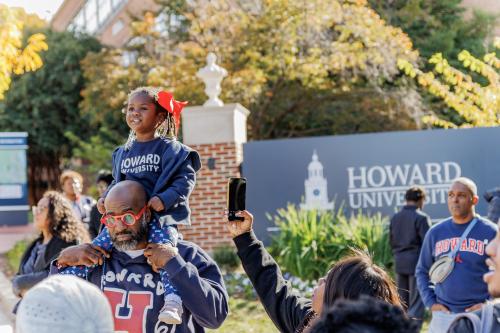I vividly recall the excitement I had as a freshman anticipating the start of Homecoming. Thinking to myself at the time, “What am I about to experience?” This was not just my first college homecoming; this was my first HBCU Homecoming. I did not quite understand the importance of it at the time, but now in my final undergraduate year I can say Homecoming is a commencement that brings those that came before back to the very grounds that I currently stand on at my beloved institution. Homecoming is a reminder that we lived, we loved, we laughed, and we are a community of educated Black folk continuously striving for greatness.
Being a first-generation college student and the first on my father’s side to graduate high school, my purview of that greatness entering Howard was at its peak but soon fell as months went by freshman year. Mentally I felt I did not belong here, constantly comparing myself to those around me who came from two-parent households, wealth, and educated families. These feelings eventually caused me to go into isolation, only leaving my dorm room to shower, occasionally attend class, and rarely eating. I wanted to tell my mom all that I was dealing with internally, but with her being a single mother and working so hard for me to be at Howard, I did not want her worried about anything. So I kept it all to myself.
It was not until office hours with professor Dr. Norman Sandridge that my sense of self, belonging at The Mecca, and understanding that I am not on this journey alone came to be. Those negative thoughts started to retreat, and I began to change course in the way I had been navigating on campus. He spoke life back into me when I told him I was thinking about transferring to a university back home. Unfortunately, I lost my academic scholarship after my first year, and oh boy! Was I devastated. It was in that moment where the spirit of not giving up on myself came over me.
I finally shared with my mom all that I had gone through mentally during my first year. She was upset that I had not come to her sooner, but a mother’s nurture will always heal and together we came up with a plan. That plan included taking summer classes at a state school that would be transferable to Howard, getting back in therapy, and working on scholarship appeal, and I did just that. From having a 2.8 GPA after my freshman year to now a 3.4 GPA in my final semesters, I am a story of resilience. I truly believe sometimes in life it takes going through periods of not knowing all that you can be to get to the best of who you are.
My success and progress at this institution would be nothing if it were not for the graciously bold Black women educators on this campus, women like Drs. Keneshia Grant, Ashley Robertson Preston, Ayana Best, Keesha Middlemass, Kelechi Fluitt, and Cynthia Evers. Not only have they each guided and assisted me on my journey, they have also challenged me in ways that developed my method of understanding the world around me. Credit is also due to many male educators on campus: Drs. Norman Sandridge, Clinton Jones, Brandon Hogan, John Stigall, DL Reed, Calvin Hadley, and Gregory Carr. I did not grow up with many male teachers, let alone Black male educators. The bonds that I have been able to cultivate with these men — them sharing their undergraduate experiences when they were once my age and giving real-life advice — has been extraordinary. Each of them in their own way confirmed for me to never apologize about your curiosity — and that your willingness to be understanding will take you far. All of the individuals that I named are the best at what they do, “One of One,” if I must say.
My historical “One of One” figure who made an impact on my life — as well as many Americans lives, they just do not know it — is the late Charles Hamilton Houston. My initial introduction to Houston’s life, his work, and the legacy he established in the legal field was summer 2024 when I was cohort member of the Howard Pre-Law Summer Enrichment Program (HPLSEP) at the university’s School of Law (HUSL). The dean of the law school at one point in time, it was in Houston’s tenure that HUSL received its accreditation, further allowing him and others to train a quarter of the nation’s top Black lawyers. This was a man who tore down systems of white supremacy across the country, using the law as a mechanism for that change. His work was the blueprint for the Civil Rights Movement and laid the foundation for the Brown v. Board Supreme Court case in 1954.
As someone who is currently in the process of applying to law school, anticipating a concentration in constitutional law specifically, it’s because of Houston and other figures like Constance Motley Baker, Thurgood Marshall, and Fred Gray that I know change through the law is possible. The road ahead for me will not be easy, but I am standing on the backs of those that came before me, their spirits are forever with me, and I am ever so inspired by my “One of One.”
-Zikei Brooks





